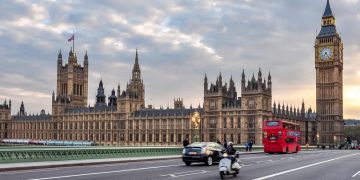United Kingdom(UK) cost of living increased to a 30-year-high of 7% in March.
This is worsening an already high cost of living situation and threatening the country’s economy. March readings show that consumer prices surged 1.1%, considered the steepest hike for that month.
All attention now shifts to the UK Government and Bank of England(BOE) to act before matters get worse in April, with a 54% increase in energy costs, hit many households between the eyes.
Inflationary pressure in the UK has now brought Prime Minister Boris Johnson’s administration into sharp focus and poses significant threats to consumers and firms.
Tesco Plc, U.K.’s biggest supermarket chain, said it is struggling to keep its shelve prices low and projects a hit on its earnings this year.
The BOE said it sees inflation hitting 8% in the coming months and is expected to raise interest rates again on May 5, when its think tank meets again to update forecasts.
The March inflation readings mark the sixth month that the figures exceeded economists’ estimates.
According to Ed Monk, Associate Director at Fidelity International, Britons are getting poorer, and many are cutting down on non-essential expenditures.
Economists are urging the UK Chancellor of the Exchequer Rishi Sunak, to do more to help households struggling to make ends meet, saying his latest aid package won’t help many families on the lowest incomes.
BOE Governor Sunak attributes the inflationary pressure to disruptions in the global supply chains and energy markets, which could get worse by Russian aggression in Ukraine.
In March, motor fuel prices surged 9.9% from February, the biggest increase in 31 years. Britons are also paying more to eat in restaurants and hotels or purchase furniture, clothes and shoes.
The U.K. central bank is not the only one grappling with faster inflation. Data on Tuesday showed U.S. consumer prices rose 8.5% in March, the biggest increase since late 1981.
ALSO READ:UK’s Economy Suffers Worst Recession on Record




